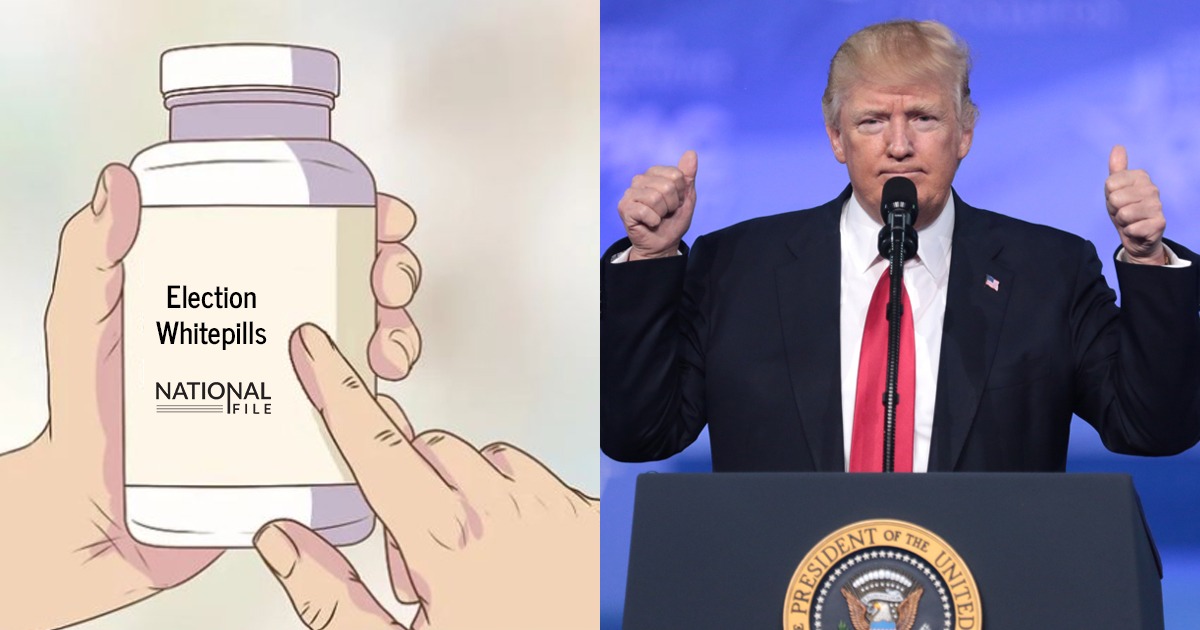The election is still not over!
Despite the recent SCOTUS decision regarding the Texas lawsuit, multiple paths still remain that make it possible for President Donald Trump to win the election.
SCOTUS on Friday rejected the lawsuit from Texas, co-signed by multiple other states, which sued the states of Pennsylvania, Georgia, Michigan, and Wisconsin for alleged Constitutional violations, including illegally altering legislated election laws and treating voters unequally, thereby allowing numerous voting irregularities to take place as a result.
The lawsuit was denied for “lack of standing under Article III of the Constitution.” In a brief order, SCOTUS argued that “Texas has not demonstrated a judicially cognizable interest in the manner in which another State conducts its elections. All other pending motions are dismissed as moot.”
Many conservatives and Trump supporters were understandably furious at the SCOTUS decision, especially due to the fact that none of the Trump appointed Justices joined Alito and Thomas in their dissent of the motion, where they argued that the Court has no authority to turn down lawsuits between states.
Supreme Court dismisses “The Big One” Texas case – Alito
Alito/Thomas disagree: “In my view, we do not have discretion to deny the filing of a bill of complaint in a case that falls within our original jurisdiction” pic.twitter.com/EFGPaNTV5N
— Charlie Spiering (@charliespiering) December 11, 2020
However, despite the rejection of the lawsuit by SCOTUS, there remain multiple ways whereby President Trump can still win the election.
1. Only A Technical Ruling
Firstly, the lawsuit was rejected by SCOTUS on purely a technical basis, in that they argue that states cannot sue each other. SCOTUS did not rule on any of the facts of the case. “Originally we thought about this as possibly four or five separate cases. So that’s the option we’re going to have to go to. There’s nothing that prevents us from filing these cases immediately in the district court,” said Rudy Giuliani, head of Trump’s legal team.
Ironically, a dissenting ruling by the late Supreme Court Justice Ruth Bader Ginsburg in Bush v Gore, has provided ammunition for Giuliani and Jenna Ellis to argue that they still have time to make their case in these various district courts. “But none of these dates has ultimate significance in light of Congress’ detailed provisions for determining, on ‘the sixth day of January,’ the validity of electoral votes,” Ginsburg wrote.
2. Supreme Court Remedy
In fact, there are still lawsuits for SCOTUS to hear and decide on. On Friday, Arizona GOP Chair Kelli Ward announced that they have just submitted their case to the Supreme Court regarding alleged election fraud in their own state. Ward argued that the case was necessary due to the lack of due process provided to them by the judicial system when investigating the alleged fraud.
Even if SCOTUS rejects any and all lawsuits from the Trump campaign, the Supreme Courts in each of the states themselves can still hear and rule on votes. Lawsuits remain ongoing in the key swing states.
As one example, the Wisconsin Supreme Court on Friday took up a case from President Trump’s legal team, which seeks to have hundreds of thousands of ballots in Dane and Milwaukee Counties thrown out. “During the recount in Dane and Milwaukee counties, we know with absolute certainty illegal ballots have unduly influenced the state’s election result,” said Jim Troupis, counsel to the Trump campaign.
3. State Legislatures Could Find Fraud, Overturn Elections
State legislatures also still have the power to direct their Electoral College votes as they choose. This remains a constitutional power vested solely in the legislatures themselves. During the Pennsylvania hearing on election integrity, Jenna Ellis cited the Supreme Court Case McPherson vs Blacker [1892], which argues that the legislature “can resume the power to appoint [electors] at any time.
As noted in an analysis piece by Revolver News, federal law requires state legislatures to have chosen their Electors by the Monday after the second Wednesday in December (December 14th this year). If they have “failed to make a choice on the day prescribed by law,” then “the electors may be appointed on a subsequent day in such a manner as the legislature of such State may direct,” clearly showing the power that the legislature has:
If states cannot satisfactorily demonstrate by December 14 that their voting procedures were legitimate and free of fraud, then the law gives state legislatures no choice but to act to restore the will of the people of their respective states. They will be obligated to pick a slate of Donald Trump-aligned electors, and send their votes to Washington, as the Constitution and Supreme Court explicitly allow.
Bush vs Gore, the last major SCOTUS case involving a presidential election, includes a section that re-emphasises the power highlighted in McPherson vs Blacker:
The State legislature’s power to select the manner for appointing electors is plenary; it may, if it so chooses, select the electors itself. … The State, of course, after granting the franchise in the special context of Article II, can take back the power to appoint electors. See id., at 35 (“[T]here is no doubt of the right of the legislature to resume the power at any time, for it can neither be taken away nor abdicated”)
4. Congress Could Overturn Election Using 12th Amendment
There are still many paths to victory for President Trump following the SCOTUS Texas lawsuit decision. It is not over and anyone who tells you it is is simply wrong! pic.twitter.com/EifkmwVr02
— Jack Hadfield ??? (@JackHadders) December 12, 2020






Keep Praying that President Trump re elected